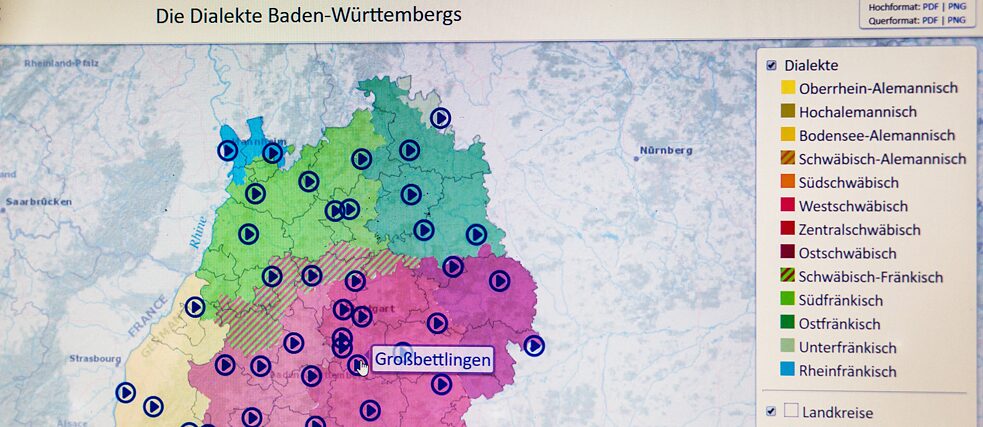Frankly ... integrated
Behind accents and speech patterns

What does the way we speak convey about who we are, and how does it influence our perception of others? Dominic Otiang’a discusses this with examples from Germany.
By Dominic Otiang’a
There was a time when the desire to speak German, accent-free, was so strong that a comment like “were you born here?” was the most sought after and ignited a big smile. Then I met a Nigerian neighbour whose accent I termed “rebellious” because, even after staying in Germany for 20 years, it remained, in his own words and with a solid Igbo-touch, “well-preserved”. “Be yourself, my brother,” he would say. He would jokingly say that anyone who had a problem with his accent should “go hug a cactus tree”, which is a modest way of saying “go to hell”. But something in me was of the opinion that whether I speak Chinese, Zulu, Swedish or Igbo, I should strive to speak like a native speaker.
Where was he born, Scotland?
While watching a regional TV channel with my relative several years ago, I came across a cultural festival where a man addressed the audience with what I perceived as an interesting foreign accent. I asked my relative who this seemingly prominent figure was.“He is the minister-president of Bavaria,” he said, and I loved this country even more. That was just a day after I had come across Roberto Blanco, a prominent personality with an immigration background. And now I thought I discovered that a state in Germany elected a man with a foreign background as their leader, which brought a smile to my face.
“Where was he born, Scotland?” I inquired.
“Edmund Stoiber is German. That is the Bavarian accent and dialect,” he responded after a peal of long laughter.
Well, this is not how I had wished to discover that – just an hour away from us in the state of Baden-Württemberg – there was a completely different dialect and accent that I couldn't hear often on national TV. This somewhat changed my perception of the 'native accent'. I thought my Nigerian neighbour Ikenna might have had a strong point: If there is a Bavarian accent, a Swabian accent and a Berlin accent, can't there be room for others, say, a Nigerian-German accent?
In her book The Human Condition that partly talks about revealing ourselves to each other by focusing on abstract subjective experience as opposed to fundamental truths, Hannah Arendt argues that “in acting and speaking, men show who they are, reveal actively their unique personal identities and thus make their appearance in the human world, while their physical identities appear without any activity of their own in the unique shape of the body and sound of the voice”.
German with a Zulu accent
I thought this argument was in complete agreement with my Nigerian neighbor’s views. I began to agree with him that an accent is itself a form of identity, yet it also narrates one's history. I mean, if a native German living in the middle of the Black Forest speaks German with a Zulu accent, there must be a story behind that.In a TV conversation with Peter Robinson on the programme Uncommon Knowledge, Thomas Sowell rejected the idea that certain speech patterns in the African American community (like saying “aks” for “ask”) had their roots in various regions of Africa. He called the whole idea “phony as a three-dollar bill”. Well, if you say “aks” for “ask” when speaking English in East Africa, it will be assumed that you are West African or that you have your roots there. So, Thomas Sowell was wrong here. Our accents and speech patterns are umbilical cords that connect us to our roots.
It is in the best interest of everyone to be themselves around others, because what can I learn from you if you come to my house and speak like me, cook like me, sing like me and hold the same views as me? You are essentially performing as me, denying me the opportunity to explore your worldview; a worldview that, if you were more authentic, might have clashed with mine and allowed us to learn from each other. As opined by the late Nigerian author Chinua Achebe in the Anthills of the Savannah:
“Whatever you are is never enough; you must find a way to accept something however small from the other to make you whole.”
“Frankly ...”
On an alternating basis each week, our “Frankly …” column series is written by Dominic Otiang’a, Aya Jaff, Maximilian Buddenbohm and Margarita Tsomou. Dominic Otiang'a writes about his life in Germany: what strikes him, what is strange, where did he get interesting insights?